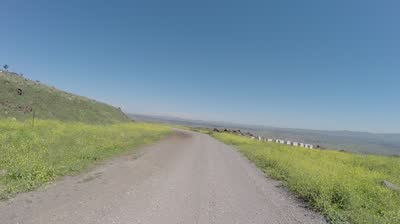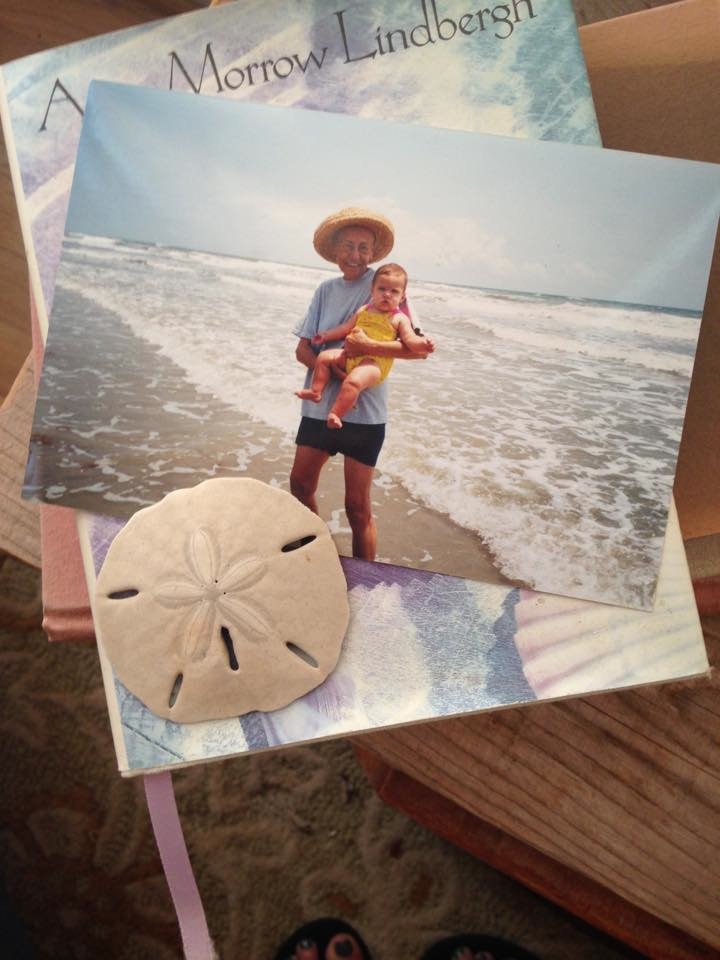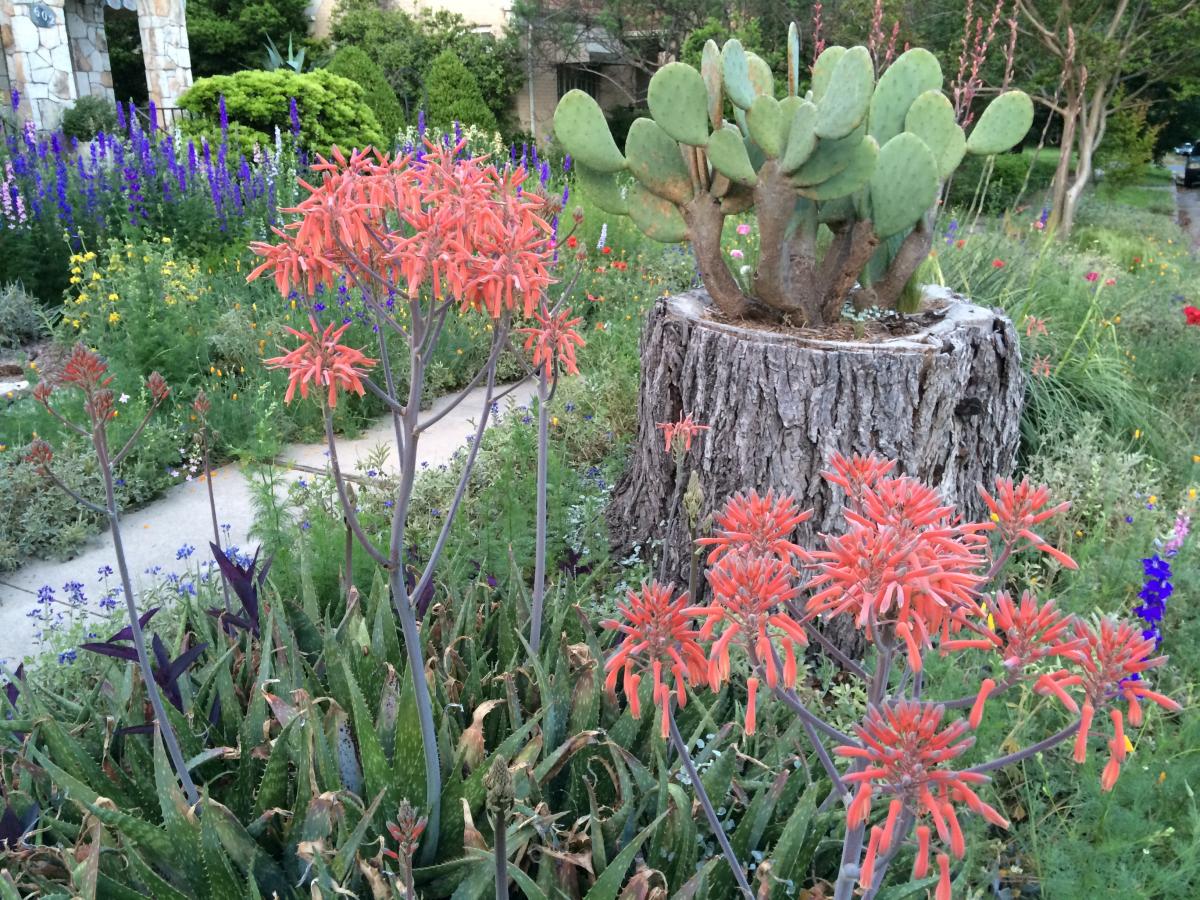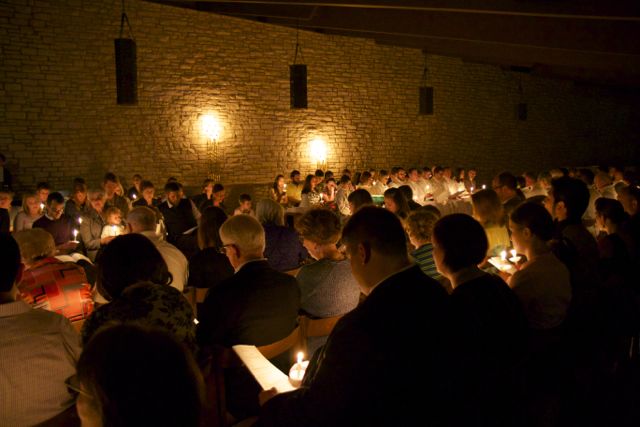A Walk in Oxford: or, Remembering about Self-Care
It is sixty-one degrees outside today in Oxford, England, where I am teaching at Christ
This area for temporary and important messaging. COVID RESOURCES
It is sixty-one degrees outside today in Oxford, England, where I am teaching at Christ
In many ways Berlin is a combination of two of my favorite places—Austin and Manhattan—stirred
Writing a summer blog post in July in Wellington New Zealand presents an additional challenge
I often hear seminary being compared with the “real world.” Usually it is contrasted with
As the Episcopal Church comes together in Salt Lake City for its General Convention, it
Some time ago, I served a parish in a Southern California beach community as the
At Seminary of the Southwest one of our core values is rootedness. For me as
What is an argument? “Argument is an intellectual process,” says a frustrated client at the
There are key differences between rest, entertainment and festival (I depend upon the insights of
What do you mean by that? How did you come to that thought? Do you
How do we know if the decisions we make are from God or some other
While visiting my parents last week, I joined them at a local restaurant for their
When I think about it, the moments of learning that had the greatest impact on
I am an unabashed, unapologetic fan of General Convention. I know this very well might
A Blues Brothers mystagogy was originally posted on The Living Church's Covenant blog on May 19, 2015.
My wife and I recently had a chance to entertain ourselves by watching The Blues Brothers, that 1980 classic, again.
Every other time I’ve watched this movie, the repeating theme wherein the “brothers” insist that they are on a “mission from God” came across to me simply as part of the joke of the movie or as a blasphemy (as it did to Aretha Franklin’s character in that famous scene), especially when I found myself in a rather pious mood.
This time I felt rather differently. Between the last time I watched this old comedy and this recent viewing, a lot of life, growing up, sorrow, and spiritual direction has intervened. I believe the brothers were indeed on a mission from God. And I believe it is “proved,” time and again throughout the movie by the constant intervention of grace.
In the accounts of the Resurrection, I have always resonated with these words from the angel at the empty tomb in the Gospel of Matthew: “He is gone ahead of you to Galilee; there you will see him” (Matt. 28:7). These words arrest me because of the sense that Jesus is always going ahead, drawing us forward to the next part of God’s will for us.
 I have travelled the road from Jerusalem to Galilee. It is not an easy journey. You travel down from Jerusalem to the edge of the Dead Sea. Then you turn and travel along the Jordan River. It is a dry place, arid and dusty. The Jordan is not broad and deep. It is narrow and muddy. Surely there are good places to stop and rest, but to move from Jerusalem to Galilee takes a certain resolve.
I have travelled the road from Jerusalem to Galilee. It is not an easy journey. You travel down from Jerusalem to the edge of the Dead Sea. Then you turn and travel along the Jordan River. It is a dry place, arid and dusty. The Jordan is not broad and deep. It is narrow and muddy. Surely there are good places to stop and rest, but to move from Jerusalem to Galilee takes a certain resolve.
 Before Mom died in 2004, she and my dad lived in a beach house on the west end of Galveston Island. Afterward, Dad moved to Dallas, but the beach house stayed in the family, and a number of our collective belongings remain there—including Mom’s books.
Before Mom died in 2004, she and my dad lived in a beach house on the west end of Galveston Island. Afterward, Dad moved to Dallas, but the beach house stayed in the family, and a number of our collective belongings remain there—including Mom’s books.
Among them are many volumes I know she read: Anne Morrow Lindbergh’s Gift from the Sea, Kathleen Norris’s Cloister Walk, and Rosamunde Pilcher’s The Shell Seekers, to name a few. Others, I know she never cracked; they’re too pristine, lacking the warps and creases of beach-combed books.
Still others I know she only partly read. I know this because of the bookmarks she left in them.
Some of these bookmarks are of the Hallmark variety, with colored tassels and wacky sayings such as “Reading is Forever!” Others come from her travels with Dad (the Moby Dickens Bookshop in Taos) or her devotional life (“Sacred Heart of Jesus, have mercy on us!”). Still others are faded dry-cleaning receipts or rumpled grocery lists.
We had just arrived back at my son and daughter-in-law’s house after the baptism of their first child at five months of age. On my mobile, I noticed messages from two of my cousins. Their mother, my mother’s only sister, my last surviving aunt of her generation, had died unexpectedly and peacefully the day before at the age of 97 years.
After years of drought, this year’s winter and spring rains have brought almost unbearable beauty to Austin. I had gotten used to a minimal landscape, the trees calligraphic in their bare-branched simplicity – and then all of a sudden the world was shaggy and colorful and fragrant with blossoms on every branch. When I run in the neighborhood around the seminary, I find my head swiveling to take in a sweet smell or a brilliantly colored sidewalk garden.
 In the midst of all this blooming, three of us realized that we had significant ordination anniversaries: Cynthia Kittredge 30 years, Kathleen Russell 25 years, and my 20, all adding up to a stunning 75 years of ordained life. We celebrated the occasion at noon Eucharist in Christ chapel on April 17, by remembering also the courageous women who went before us and made the path that we walk on. You can hear Kathleen’s beautiful sermon here. What follows is the Eucharistic prayer I wrote for the day, inspired both by the physical beauty that surrounds us here and by the beauty of the work that involves us day in and day out at Seminary of the Southwest: forming students to live and lead as Christ in all the contexts to which they are called.
In the midst of all this blooming, three of us realized that we had significant ordination anniversaries: Cynthia Kittredge 30 years, Kathleen Russell 25 years, and my 20, all adding up to a stunning 75 years of ordained life. We celebrated the occasion at noon Eucharist in Christ chapel on April 17, by remembering also the courageous women who went before us and made the path that we walk on. You can hear Kathleen’s beautiful sermon here. What follows is the Eucharistic prayer I wrote for the day, inspired both by the physical beauty that surrounds us here and by the beauty of the work that involves us day in and day out at Seminary of the Southwest: forming students to live and lead as Christ in all the contexts to which they are called.
The opening line of T.S. Eliot's masterful poem, "The Waste Land," reads: "April is the cruelest month…" For me and for my Easter Season reflections, Eliot so describes the fourth month as such because throughout nature, things are dying to be born. The knuckled bud on the branch is dying to bloom and then blossom. The bulbs planted in the Fall are striving to break the earth's crust in order to be birthed.

The evening of Holy Saturday my wife and I walked in procession with our children toward Christ Chapel. The Sanctuary was hazy with incense and dark like the Holy Saturday Tomb, like the face of the deep at the beginning of the world.
We waited there with Noah, with Abraham and Isaac, with Moses and Miriam, and with Isaiah and Ezekiel. We chanted the psalms together at the tomb of the Messiah and the tomb of the world. We asked for deliverance and reminded God of all those promises, knowing God’s faithfulness, but trying to forget for a little while so as to remember again.
Reflection from a member of The Episcopal Church delegation to the United Nations Commission on the Status of Women (UNCSW)
On Easter morning we find Mary crying in the garden outside the empty tomb. She is so confused by the resurrection that at first she doesn't recognize Jesus at all when he asks her why she is weeping. It has always struck me as interesting that Jesus doesn't tell her not to be afraid, nor does he tell her to dry her tears. He asks her, "Why? Why are you weeping?" In asking that question he lets Mary find her own voice to explain her distress. Jesus knows it will be vitally important to the future of this fractured community that they find their voices–because they are the ones he is counting on to tell a cohesive story of hope to the world.
“So they went out and fled from the tomb, for terror and amazement had seized them; and they said nothing to anyone, for they were afraid.” Mark 16:8
Historical critics used to argue that the tradition of the discovery of the empty tomb by the women followers of Jesus was secondary to the resurrection appearances to the male disciples and that it was these scenes, when Jesus appears to talk and eat with the disciples, that are the source for resurrection faith. However, Jane Schaberg’s work has persuaded me that the faithful women, prepared by their experience with Jesus, would have been provoked to insight by the shock of the empty tomb.1
As a young seminarian in my early twenties, I loved the BBC comedy The Fall and Rise of Reginald Perrin. In this hilarious satire, Reginald dismantles his life as a successful businessman. The lines between his fantasies and his reality become blurred to the point where Reginald starts saying and doing things that are increasingly outrageous. Then Reginald fakes his own death and begins an alternate life free of responsibility and social convention. At age 23 I often wondered why this series delighted me so very much.
The pounding rain was the least of our problems, though we didn’t know it at the time. My son and I were traveling home to Austin after a week on the coast. I gripped the wheel and squinted into the watery I-10 corridor as Gabe pretended to read. Some cars poked along with us. Others bullied their way by in a hair-raising blur.
As we approached Katy, just west of Houston, the rain let up. I could breathe again. Tentatively, I accelerated. Buildings emerged from the mist. Gabe began to read for real. I moved back into the fast lane. Everything would be fine!
A summary of a paper presented to the Central Texas Colloquium on Religion
The Central Texas Colloquium on Religion began five years ago as a celebration of the many scholarly conversations that move around under the umbrella of religious studies. It will come as no surprise to those who know me that I think theology has a place under that umbrella too. Just as theology is something less than it could be when it lacks the methods of textual analysis, historiography, and sociology, religious studies is prone to a certain blindness without the input of theology.
Slate Magazine dubbed 2014 “The Year of Outrage,”1 and I’m inclined to agree.
We were outraged when a London block installed anti-homeless spikes, and when Khloé Kardashian wore a Native American headdress.2 We were outraged when we read the Senate’s torture report outlining CIA practices of systematic prisoner abuse and we were outraged when we read about Lena Dunham’s childhood sexual experimentation.3 We were outraged by Bill Cosby; we were outraged by gentrification and income inequality; we were outraged by Ferguson; we were outraged by the Austin based “Strange Fruit PR” firm who foolishly chose a name that echoed a 1930’s Billie Holiday song about lynchings. We were outraged by Fox News and/or by Jon Stewart’s satire of Fox News. We were outraged by Rolling Stone’s UVA rape story, then we were outraged to find out that they got their facts wrong. We were outraged that iTunes gave away U2’s new album for free without asking us. And by “we” in all of these examples I mean something like “social media” or “the internet”—“the internet” construed as a kind of corporate consciousness and increasingly a corporate conscience.
“This is my commandment, that you love one another as I have loved you. No one has greater love than this, to lay down one’s life for one’s friends.” – John 15:12-13 NRSV
“Do you have time to talk? I would like to discuss something that is really important to me.” The stomach drops. Instinctively, you expect a difficult conversation –the “difficult” conversation with a friend.
The United States needs such a conversation. We need an honest, heart-wrenching conversation about race in America, and yet, it is the very conversation that we Americans run away from the most. It seems there is no way to have a true dialogue, a true sharing of experiences between members of different races in this country.
If you secretly (or not so secretly) enjoy Ash Wednesday as much as I do, you’re probably very familiar with its central chorus: Remember you are dust, and unto dust you shall return. But have you ever given the logic of this line any thought? If so, you may have realized that it makes no sense at all—which is exactly what makes it so compelling.
For starters, check out the verb tenses: You are dust, and to dust you shall return. This admixture of present and future tense confounds our understanding of both time and identity. If we are something—dust, Girl Scouts, conspiracy theorists, vegetarians—how can we “return” to being that thing? We already are it. We don’t need to circle back to it in the future.
I was blessed to have had the opportunity to attend the 28th Annual Multicultural Alliance Sharing Our Faith Traditions (SOFT) Retreat at Lake Texoma, Jan. 5-8, 2015, with nearly 40 other seminarians and faculty from eleven Muslim, Jewish, and Christian seminaries…from California, Rhode Island, Connecticut, and Texas. We spent our waking hours sharing and listening to each other’s faith stories of struggle, joy, and yes…G-d/Allah/God. Three scholars, a Baptist Pastor, an Imam, and a Rabbi, shared with us parts of their own faith stories. We broke into small discussion groups following each lecture and each worship service – a low liturgical Christian service, a Muslim sermon followed by Muslim prayers in Arabic, and a Jewish service in Hebrew, all led by seminarians from their respective faith traditions.
Last week the African American Presidents and Deans of Theological Schools in the United States posted “An Open Letter to Presidents and Deans of Theological Schools in the United States” in the Huffington Post. In it they wrote,
We invite our colleagues—presidents, deans and leaders of all divinity and theological schools—to arise from the embers of silence and speak up and speak out as the prophet of old, ‘let justice run down as waters, and righteousness as a mighty stream’ (Amos 5:24). We encourage you to endorse this statement by responding in your own particular context to our theological call to action with curricular programs, public forums, teach-ins, calls to your congressional leaders, writing op-ed pieces, and more.
In the well-known biblical passage quoted above, Amos reminded the people of Israel, and reminds us, that there is no status that places one above the demands of justice. Amos challenged Israel’s belief that divine election allowed them an assurance of divine favor over against their sinful, pagan neighbors who were going to feel God’s wrath on the “day of the Lord.”
The dirt of Laredo is caked on my boots, a dingy and grey chalk that bears the complexities of the lives of immigrants in this Texas border town, a matter of miles from Mexico.
During Encuentro this January, my classmates and I met two families at Christ Church in Laredo. They are separated from their extended families in Central America or Mexico. They, like many immigrant families on the border, face poverty, often finding only low-paying jobs. They fled the violence and injustice of their homelands, though they are not secure in the US; those who are undocumented – even if they are attempting to get paperwork approved – live in fear of the Border Patrol, deportation and state-sanctioned detention facilities.
“I have a dream.” The influence of these words by Martin Luther King, Jr was on full display Thursday night, January 15, at the 10th annual MLK Oratory Competition held at the George Washington Carver Museum. The room buzzed with excitement as it filled with parents and community members brimming with hope and expectation of what the young writers were going to say. The crowd slowly inched into the room with a dissipating hope of actually finding a seat. With standing room only, seventeen elementary school students, from different parts of Austin, competed in the competition as part of the annual MLK celebration presented by the Austin Area Heritage Council. In a five-minute speech, each speaker was to answer the question, “What message of hope do you think Dr. King would have for the world today?”
During the first week of January, I participated in the annual Interfaith Seminary Retreat sponsored by the Multicultural Alliance of Texas. This event brings together students from Christian seminaries in Texas with Jewish and Muslim seminarians from Los Angeles and Baltimore for the purpose of deeper learning and awareness of one another’s traditions. The focus of this retreat was the role of story telling. Stories were used not just to explain the various traditions represented but as a way of engaging one another in small groups and individually. The act of telling stories is a powerful way of humanizing those who might seem different from us. It allows us both to see what is distinctive about each of our journeys but also what are the commonalities that bind us together.
Today is Epiphany, when we celebrate Christ’s arrival among us, and revelation as the Savior of all. He came as a ‘mere’ child. Because of the recent visit of a young African choir, I am thinking today of the youngest and most vulnerable among us and the music they create.
There is a long tradition in the West of children’s choirs. Attached to cathedrals, colleges and universities across Europe, choir schools taught boys to read, write and especially to sing music for the liturgy. The levels of musical achievement were quite astonishing.
At a seminar on planned giving recently, I heard an estate planning attorney say something that tends to be at the heart of the challenges we all face in terms of creating or updating our wills.
His comment was, “Getting your will together is usually at the bottom of everyone’s to-do list.”
Psalm 45; Isaiah 9: 1-7; Luke 22: 54-69
|
The book of Isaiah relates prophetic utterances in the midst of geopolitical turmoil and sinfulness in the life of Judah and Jerusalem. During the period in which Isaiah lived, the people of Judah and Jerusalem faced great uncertainty and political upheaval. Read More
November 25, 2014
Homecoming, Part 2: Beyond ComplaintIn an earlier blog post, I complained about the happy-ending, “fairy-tale” aspects of the parable of the prodigal son. Homecomings, I reflected, are rarely as rosy as all that. But in the parable’s finale, when the resentful brother complains about the party, we feel right at home. Not only do we sympathize with him, we are him. “No fair!” we grumble over our laptops and spreadsheets while others watch TV. “No fair!” we grouse when another family member gets his favorite meal—again. “No fair!” we seethe in our cubicle as a new hire moves into the corner office. “No fair!” we whisper when a loved one dies and so many, many others do not.
November 24, 2014
THURSDAY, DECEMBER 25 , 2014Psalm 2, 85; Zechariah 2: 10-13; John 1:1-18
|